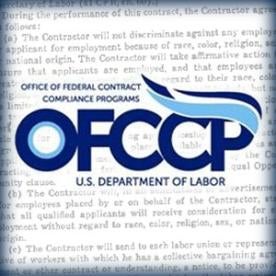On Tuesday, the Office of Federal Contract Compliance Programs (“OFCCP”) announced a proposed rule to revise and modernize a sex discrimination guidance it issued in 1970 and clarify federal contractors’ obligations with respect to sex discrimination. As OFCCP explained, “[t]his update, the first in more than four decades, would reflect present-day workplace realities and align OFCCP’s rules with current law under Title VII of the Civil Rights Act of 1964.”
The proposed rule addresses a wide range of potential barriers to equal opportunity and fair pay for women in the workplace, including discriminatory wage practices, sexual harassment, workplace accommodations for pregnancy, sex stereotyping, gender identity protections and family caregiving discrimination. For instance, for sex stereotyping, OFCCP’s proposed rules offer the following examples:
-
Failure to promote a woman, or otherwise subjecting her to adverse employment treatment, based on sex stereotypes about dress, including wearing jewelry, makeup or high heels.
-
Harassing a man because he is considered insufficiently masculine.
-
Adverse treatment of an employee because he or she does not conform to sex-role expectations by being in a relationship with a person of the same sex.
-
Adverse treatment of an employee or applicant because of his or her actual or perceived gender identity or transgender status.
-
Adverse treatment of an employee or applicant based on sex-based stereotypes about caregiver responsibilities.
-
Denial of opportunities to mothers of children based on the sex-stereotyped belief that women with children should not or will not work long hours, regardless of whether the contractor thinks it is acting in the employee’s or children’s best interest.
By updating these guidelines, OFCCP recognizes not only demographic shifts, such as the increased presence of women in the workplace, but also legal developments, such as the Pregnancy Discrimination Act (“PDA”) and Supreme Court precedent. According to OFCCP’s press release and as explained by OFCCP Director Patricia A. Shiu, “[o]ur sex discrimination guidelines are woefully out of date and don’t reflect established law or the reality of modern workplaces. We owe it to the working women of America—and their families—to fix this regulatory anachronism so there is no confusion about how federal contractors must comply with their equal opportunity obligations.”
In large part, these proposed expansions and clarifications mirror developments under Title VII and the PDA. However, they would potentially expand existing protections in two key respects. First, the proposed regulations identify caregiver discrimination, discrimination based on dress or personal appearance and other forms of sex stereotyping as sex discrimination. Although the EEOC issued a guidance in 2007 on the topic, there is no express federal provision prohibiting discrimination on this basis. However, courts have recognized, based on Title VII and/or the PDA, that discrimination based on sexual stereotypes concerning caregiving responsibilities may be protected. Second, the proposed regulations expressly recognize that pregnant employees are entitled to accommodation, an issue that has divided the federal courts and that is currently pending before the Supreme Court.
Because most of the regulations align contractor non-discrimination obligations with existing EEOC standards and Title VII and PDA precedent, most contractors are already compliant with the proposed provisions. To comply with the new requirements, contractors should audit their existing policies, training and practices to comport with them. Most significantly, contractors should ensure that their policies and training clarify that managers may not make employment decisions based on (or make statement concerning) sexual stereotypes, such as perceptions about how women and men should act and dress, who should care for children and perceived limitations of family responsibilities. In addition, many contractors will need to update their ADA accommodation policies to afford accommodations to pregnant employees consistent with the proposed regulations.
In addition, because the regulations are administered by OFCCP, employers will face new enforcement mechanisms for these provisions. If an employer is accused of violating Title VII, the employee must first file a charge and then has the option of filing suit in federal court. Now, employees will also have the option of filing a charge or complaint with the OFCCP, which does not have extensive experience investigating individual claims. OFCCP has, through the enforcement process, the ability to seek remedies, such as debarment, that are not available to the EEOC or under Title VII. Moreover, OFCCP will be focusing on these additional non-discrimination obligations during compliance audits and, potentially, looking for opportunities to identify and remedy class-wide claims for violations of them. The standards for class claims and relief adopted by OFCCP are substantially less rigorous than those that apply to class litigation in federal court.
The proposed rule is scheduled to be published in the Federal Register on January 30, 2015. As such, the public may submit comments until March 31, 2015.
Ryan Hutzler also contributed to this article.


 i
i

